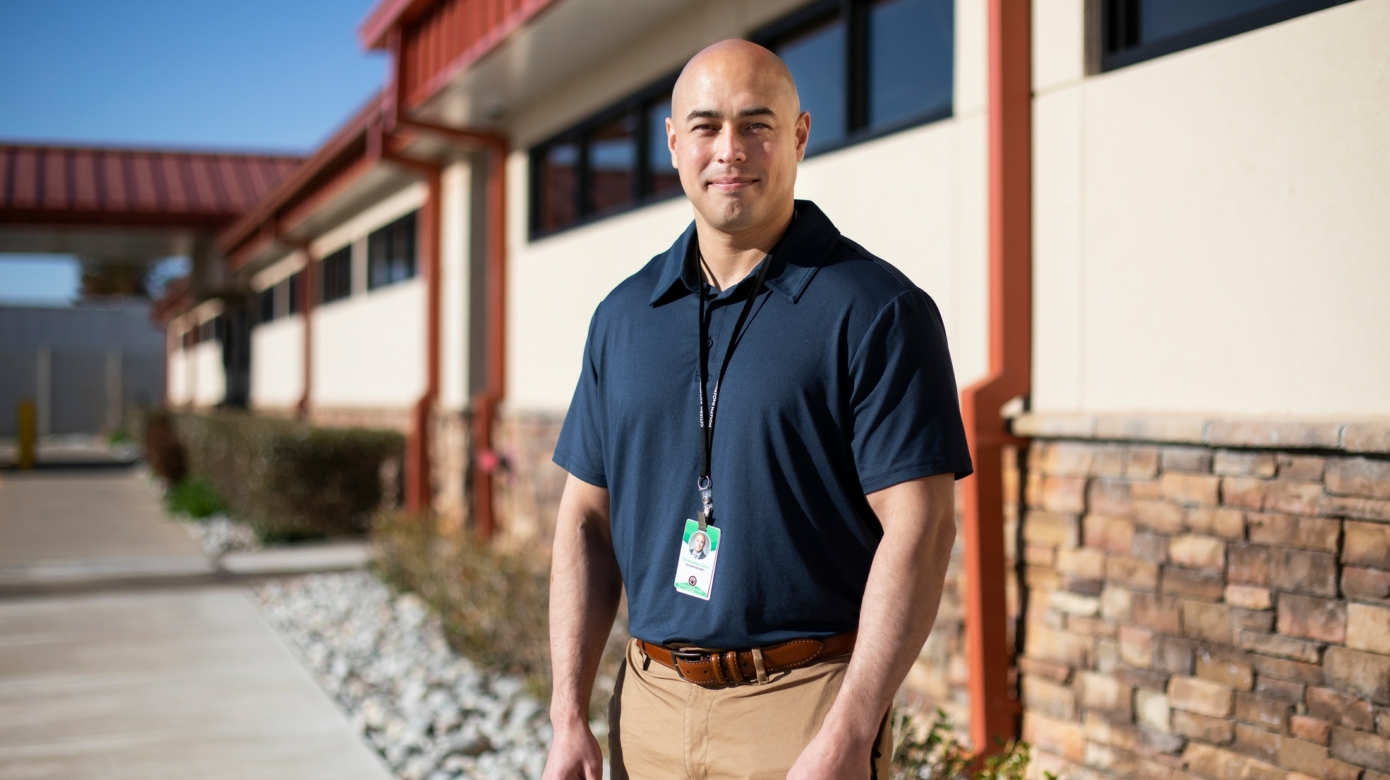With a conditional acceptance to Harvard Medical School, Citizen Potawatomi Nation tribal member Christopher Jenks spent a month with CPN Health Services in spring 2021. The Bertrand family descendant wanted additional hands-on experience before beginning his medical degree program and selecting his specialty. His time in the Army as a Special Forces medic opened his eyes to medicine as a career opportunity.
“I saw myself in that setting, and I really enjoyed it,” he said. “And then being able to provide care for my teammates, I was like, ‘This is something that I really enjoy, and I might be able to be good at, given enough time and effort.’”
“Nomadic lifestyle”
Jenks moved every few years throughout his childhood. His dad’s position with the U.S. Department of State took the family to Brazil, Venezuela, Taiwan, Korea and other countries.
“My dad’s duty stations were about three years apiece. So we just kept on moving, and each move was an opportunity to learn about different cultures and experience the new geographic area and food and make new friends,” Jenks said.
After graduating high school from Seoul Foreign School in Korea, he attended one semester of college before deciding to continue his studies later. Jenks then enlisted in the Army in 2008 and initially served as an infantry mortarman in the 75th Ranger Regiment and later as a medic with 7th Special Forces Group.
“I wanted to continue that nomadic lifestyle of adventure and exploring new places and new people. And that’s what actually drew me to Special Forces selection. And I ended up doing that through the back end of my time in the Army,” he said.
With no particular interest in medicine prior to entering the Army, he deemed it the most interesting option while in Special Forces. His time in the Army also taught him to succeed at a new skill set out of necessity.
“They’ll send you to sniper school or language school, and there isn’t really much opportunity for you to question if you can do it,” Jenks said. “You just have to do it. You have to be successful. You have to graduate the course. So I think having those varied experiences and being able to do them gave me more confidence to be like, ‘Maybe I can be successful academically where I hadn’t been previously.’”
Jenks spent over nine years on active duty, with an honorable discharge in fall 2017. He then earned a Bachelor of Science in biology from Towson University in Maryland in 2020.
“Varied experience”
While applying to medical schools, he called CPN Health Services to inquire about internships and worked with the CPN Department of Education to set up his month-long stay with the Tribe.
On his first day, Jenks sat in the parking lot outside of the CPN Administration Building, waiting to meet with education department staff and feeling nervous. Then, his phone alerted him about an email from Harvard University, which turned into a surreal experience.
“I’m like, ‘OK, I got my rejection,’ because I saw the ‘Harvard.’ I was like, ‘OK, cool, whatever. At least I tried.’ And then I open it up. It says, ‘Congratulations.’ And I’m like, ‘Wha- What?’ This (internship) just started off in the best possible way, and then each subsequent day was just as good as the previous one,” Jenks said.
Throughout his time with CPNHS, he shadowed the chiropractic clinic, primary care physicians, urgent care facilities, pediatrics, radiology, specialty clinic and more.
“I never would have expected that I would have had such a varied experience here, and it’s just been incredible. … I’m so glad I came down here.” Jenks said.
He also saw the CPN Emergency Services and health services work with other community partners to provide COVID-19 vaccinations to Tribal members and area residents. Not many medical school students observe medical professionals fight a pandemic before they begin classes.
“It was really interesting to see the complex, coordinated effort involved and the logistical considerations in a successful mass vaccination. So, that’s directly relevant to our current situation and medicine and the future of medicine,” Jenks said.
“Humanistic aspect”
While interning with the Nation, he spent time with many different doctors, nurse practitioners and specialists, each with a unique approach. He labeled it as one of the experience’s most helpful traits.
“Respect and trust seem to be common themes here, and it’s not something that you can really quantify. But that’s why it’s the art and practice of medicine,” Jenks said.
“I think that’s a good thing to see before I start medical school, to remind me that in this field of evidence-based medicine, there’s a lot of the humanistic aspect that you got to keep in mind to reach your patients and to deliver the best possible care and to develop that trust.”
While shadowing CPNHS staff, he also learned the day-to-day of a doctor’s life and the differences of serving a tribal clinic.
“I’m so grateful for (CPN Chief Medical Officer Dr. Adam Vascellaro) for coordinating such a varied educational experience and mentorship throughout the whole thing,” Jenks said. “It was far beyond the scope of just medicine. It was life advice for future doctors and family planning, financial planning.”
He has not decided on a specialty or focus for medical school, but is interested in serving Indigenous populations in rural settings. His experiences at Fort Defiance Indian Hospital and CPNHS have reinforced this desire.
“I’ve never lived anywhere for more than three years, so I want to keep exploring,” he said. “I want to see how other Native American communities do it as well. And I eventually want to settle down somewhere, but I’m still in that exploration phase and exploring what’s out there.”
To learn more about Citizen Potawatomi Nation Health Services, visit cpn.news/health. Find the Citizen Potawatomi Department of Education at cpn.news/education.

